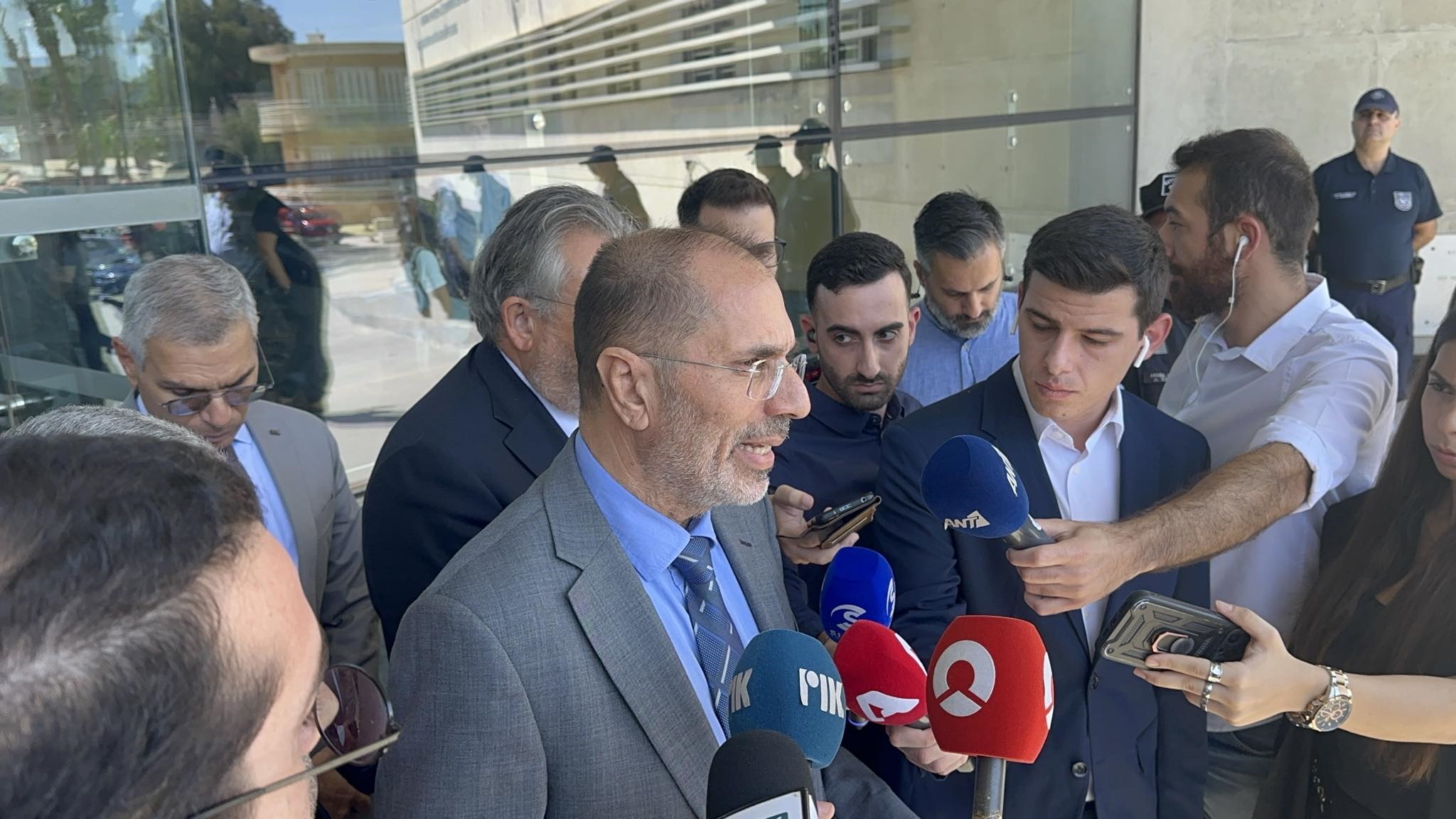Concerns were raised about a perceived growing climate of fear and censorship following the dismissal of Odysseas Michaelides from his position as auditor-general at an event held by the Green Party in Nicosia on Wednesday.
The event, titled “The fight against corruption after the dismissal of the auditor-general”, featured a range of speakers who expressed their discontent with the current state of affairs and called for continued efforts in the fight against corruption.
Speakers included Michaelides’ lawyer Christos Clerides, the vice president of the Organisation for Security and Cooperation in Europe (OSCE), MP Irene Charalambidou, and journalist Giorgos Kallinikou from Phileleftheros.
The general sentiment among the participants was that Michaelides’ tenure as auditor-general had been instrumental in uncovering significant scandals, and his removal represented a setback in the fight against corruption.
Green Party MP Georgios Perdikis said that no reasonable person could deny that during Michaelides’ time at the Audit Office, environmental scandals were prioritised and addressed appropriately.
Perdikis listed several cases Michaelides had investigated, including agreements involving betting agency Opap, airport operator Hermes, the Limassol port, the Cypra abattoir and the golden passports scandal.
He added that it was inevitable for the “deep state of corruption to eventually move to oust Michaelides”, describing his dismissal as a significant reversal in the fight against corruption.
Clerides described the dismissal of Michaelides as “a landmark decision in Cypriot history due to its wide-reaching political implications”.
He criticised the process, asserting that the judicial council was fully aware of the political consequences of its decision.
While acknowledging that the ruling was respected through its implementation, Clerides argued that informed criticism of judicial decisions is necessary and not disrespectful.
He also quoted Greek author Sarantis Kargakos, describing corruption as “a shadow state, supported by the terror of the powerful and the cowardice of the weak”.
Clerides went on to question the power of the attorney-general to dismiss officials appointed by the president, describing this dynamic as problematic and highlighting the need for legislative reform.
Charalambidou reiterated Michaelides’ role as a key figure in the fight against corruption, noting that his work had unsettled many.
She cited his efforts to document former President Nicos Anastasiades’ second trip to the Seychelles, despite government denials.
Charalambidou also criticised the appointment of political figures to the office of attorney-general, adding that “only in Cyprus does this practice occur”.
She called for constitutional reforms to ensure the independence of such positions and expressed concern that Michaelides’ dismissal had created a chilling effect, discouraging other officials from taking bold action against corruption.
Kallinikou added that Michaelides had been a trusted figure who provided journalists with access to information, unlike previous people in the same role.
In the closing remarks, former MEP Demetris Papadakis called for immediate constitutional reform to address the country’s changing needs, while former MP Sofoclis Fyttis suggested that financial motivations, such as the issue of multiple pensions, were behind the ousting of Michaelides.
Lawyer Eleni Vrachimi concluded the event with a sharp criticism, stating that Michaelides’ dismissal had caused the country to “sink into the cesspool of corruption”.
The event underlined the belief among the speakers that the dismissal of Michaelides was a major blow to efforts to combat corruption in Cyprus, with many also expressing the hope that he would run in the presidential elections in 2028.







Click here to change your cookie preferences